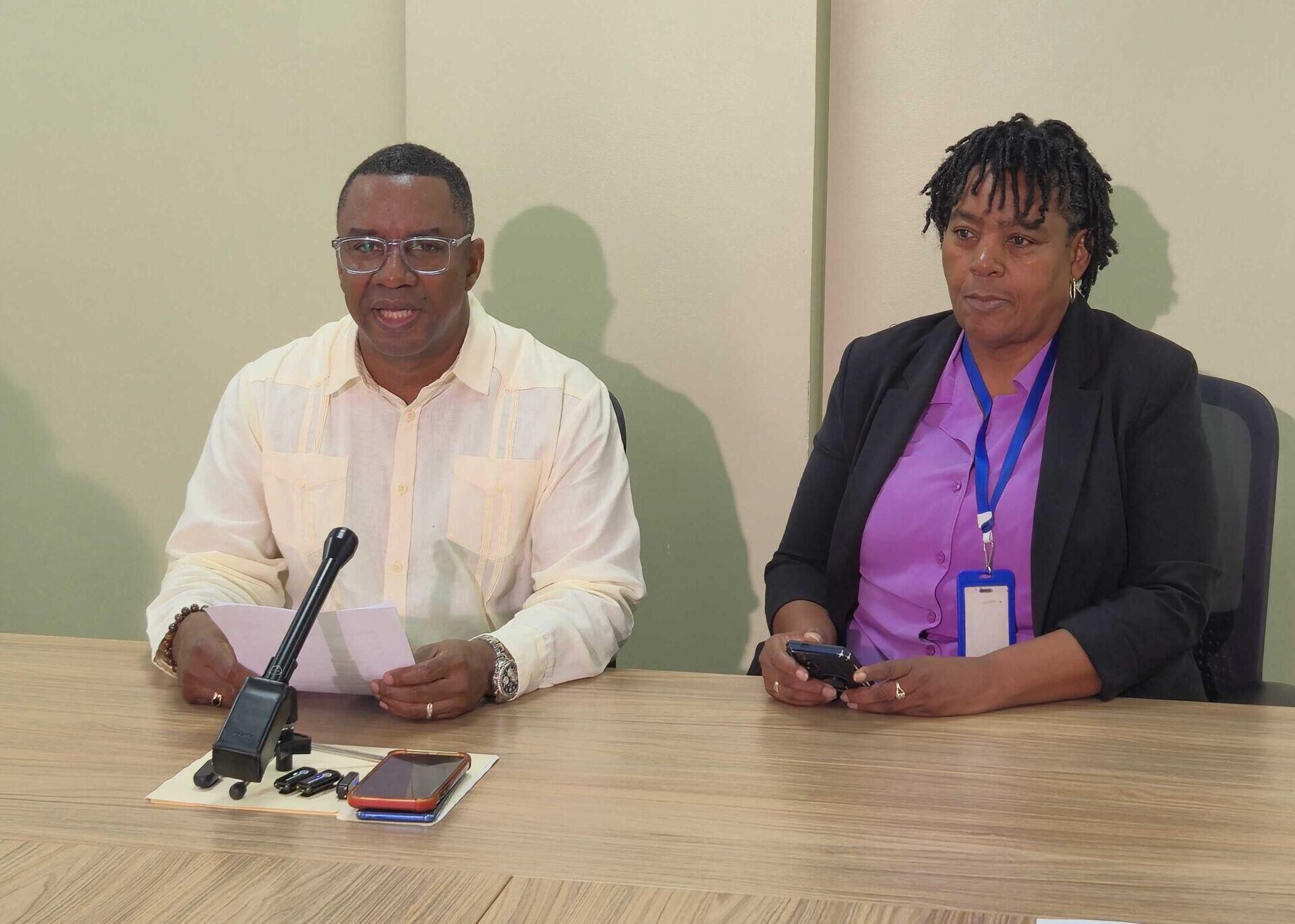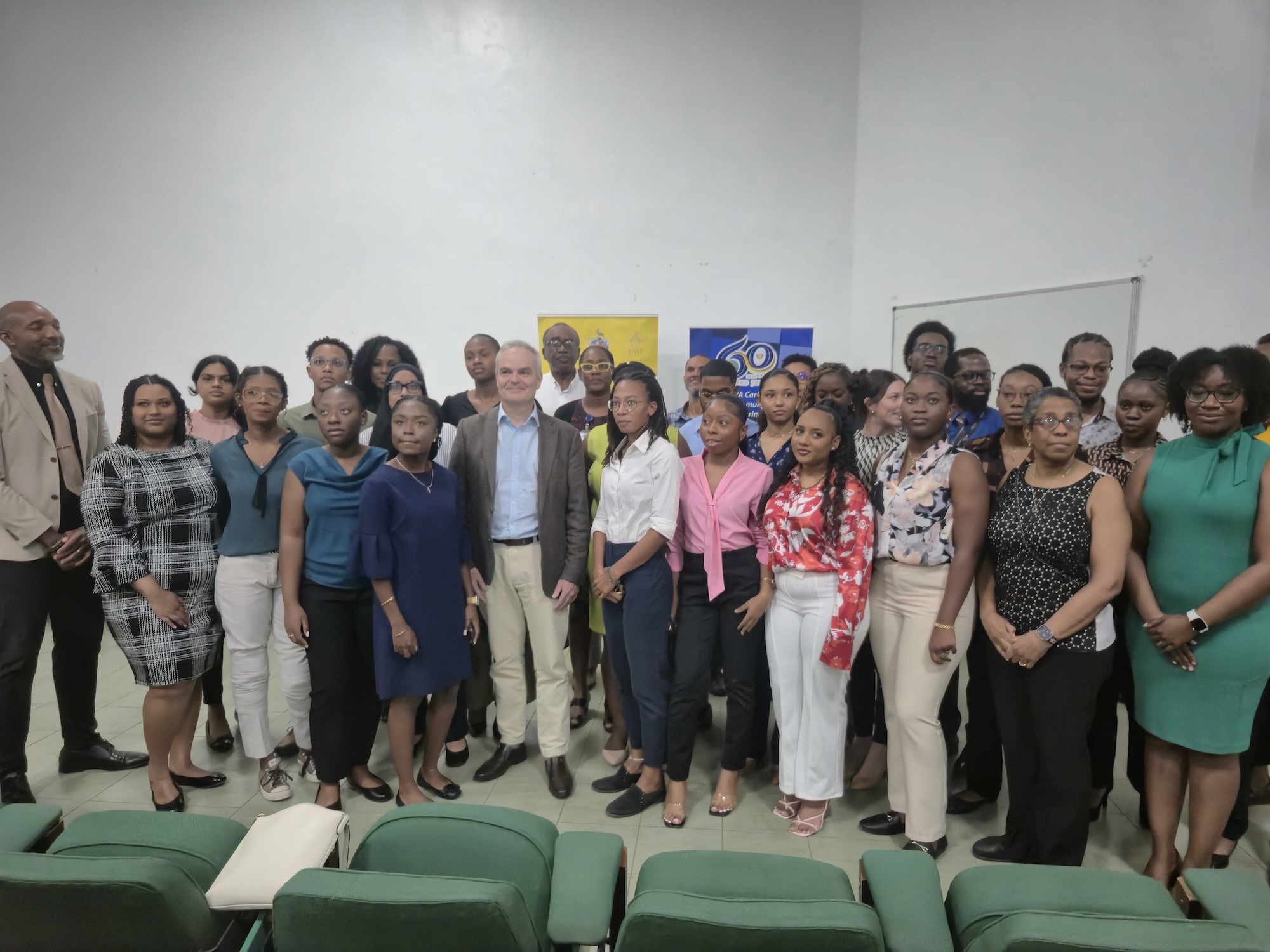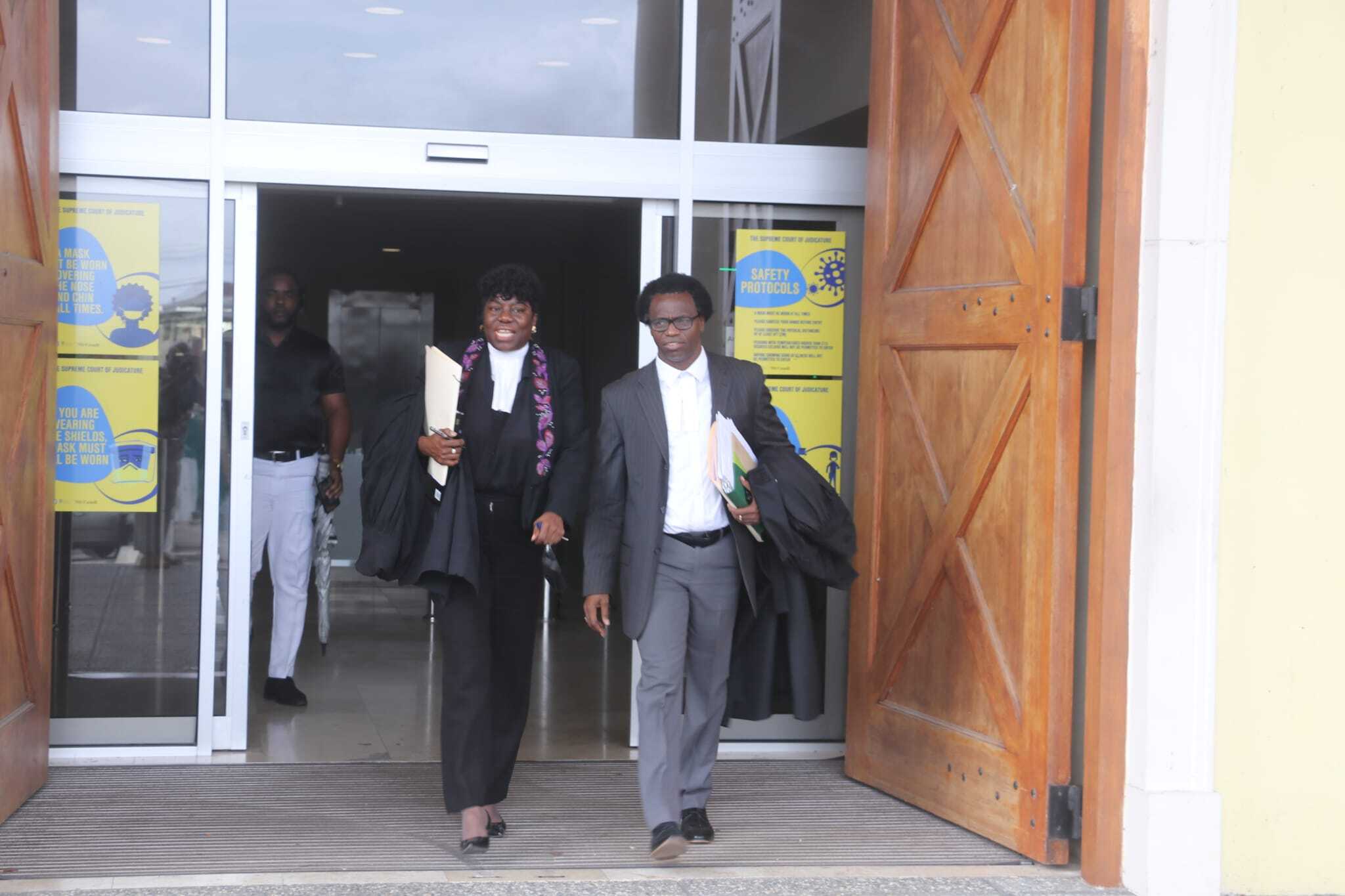The Barbados Immigration Department has taken a significant leap towards digitalization with the launch of a new online visa application portal and the introduction of online payments for all immigration services. The announcement was made by Minister of Home Affairs and Information, Wilfred Abrahams, during a briefing at the department’s headquarters on Princess Alice Highway, St Michael, on Tuesday.
作者: admin
-
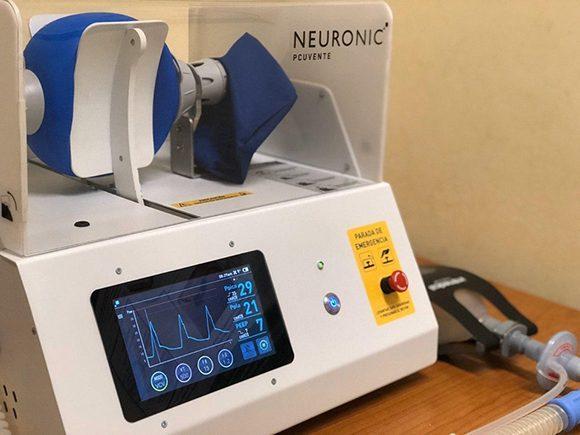
System for design: a road travelled and still to be travelled
The Cubaindustria 2024 event, currently underway, features a dedicated Design Forum focusing on the recently approved industrial design policy, its environmental implications, and its alignment with the circular economy. This forum highlights the progressive economic transformations in Cuba, which have paved the way for new opportunities and challenges in the design sector. The cornerstone of these advancements is Decree 88, approved by the Council of Ministers in 2023, which established the National System for Industrial Design and Visual Communication.
Gisela Herrero García, Director of the National Design Office (ONDI), emphasized the historical significance of this development. ‘We were pioneers in creating an office that itself represents the first public policy in design. Thanks to Fidel Castro’s vision, an organization was established in 1980 to evaluate, develop, train, and promote design. This was a bold initiative,’ she remarked. The journey to this milestone included the creation of the Evaluation System and the Registry of Designers, culminating in nearly 45 years of dedicated effort.
The newly approved policy and system are the result of collaborative efforts involving professionals from various disciplines. Given its dynamic nature, the system requires continuous updates to adapt to evolving technologies and methodologies. ‘The National System is a work in progress, constantly reinventing itself. As disciplines evolve and new technologies emerge, designers must be equipped with the tools to address contextual challenges,’ Herrero García added.
Although the design policy is relatively new within the industry sector, it has a cross-cutting influence on other areas such as industrial development, automation, maintenance, recycling, and packaging. This integration, according to Herrero García, strengthens the national economy. ‘Design must serve the economy. It’s crucial to position design as an investment rather than a cost, ensuring it adds value to processes and outcomes,’ she explained.
The policy’s implementation has already yielded tangible results, including enhanced partnerships with various entities and a deeper understanding of the strategic importance of design evaluation. For instance, the Cuban Apiculture Enterprise (Apicuba) underwent significant transformations following an evaluation, leading to improved product quality and organizational efficiency. ‘Even small improvements can have a profound impact, enhancing both the product and the organization’s strategic management,’ Herrero García noted.
Looking ahead, the priorities for the design sector are extensive, ranging from introducing design concepts at an early age to creating solutions for the elderly. ‘Design and communication must be recognized as key drivers of company development,’ Herrero García stressed. The systemic approach to design emphasizes collaboration and process-oriented thinking, ensuring that design continues to play a pivotal role in Cuba’s economic resilience.
Herrero García concluded, ‘Without political will, we wouldn’t have reached this point. The design policy is a strategic tool for training and development, and with a systemic approach, it will continue to enhance our economy.’
-

Biomodulin T to be part of primary health care
Cuban President Miguel Díaz-Canel Bermúdez emphasized on Tuesday the importance of integrating Biomodulin T into primary health care across Cuban communities. During a meeting with health experts at the Palace of the Revolution, he urged that medical professionals be adequately trained to prescribe this innovative treatment. The discussion highlighted the significant role of Biomodulin T, a bovine thymus extract-based drug, in addressing immune dysfunction and recurrent infections, particularly among the elderly. Clinical trials involving nearly 9,000 nursing home residents demonstrated a remarkable reduction in acute respiratory infections (ARI) by over five times, and a 50% decrease in mortality risk compared to those outside such facilities. The drug also showed a 70% reduction in respiratory infection incidence among the elderly, a leading cause of death in Cuban nursing homes. Additionally, Biomodulin T has proven effective in oncology, rejuvenating patients’ immune systems when combined with chemotherapy and immunotherapy. It has also been successful in treating thymic hypoplasia in children, with 83% of treated children achieving normalized thymus size and function, and 71% showing clinical improvement. Given these promising results, President Díaz-Canel called for expedited efforts to incorporate Biomodulin T into national health strategies, especially in light of Cuba’s aging population. The drug, which gained prominence during the COVID-19 pandemic with over 1.9 million units distributed and more than 238,000 patients treated, has been recognized with two awards from the Academy of Sciences in 2022 for its efficacy in treating lung cancer and its immunomodulatory effects in older adults.
-
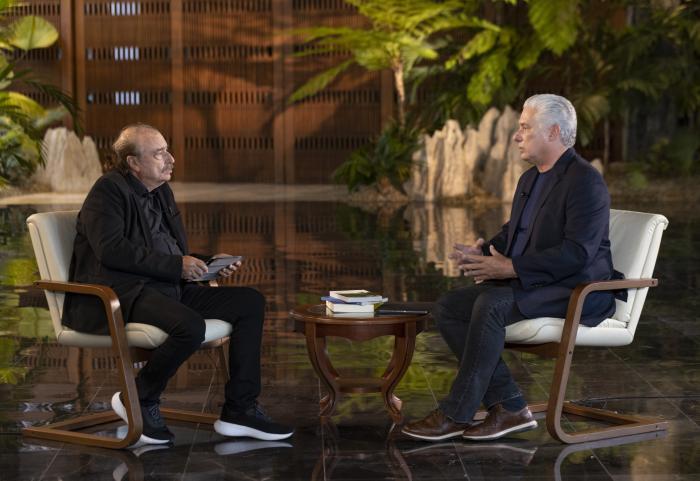
Cuba has never stood idly by
In a comprehensive interview with Spanish journalist Ignacio Ramonet, Cuban President Miguel Díaz-Canel addressed the pressing economic challenges facing Cuba, the impact of the U.S. blockade, and the nation’s efforts toward regional integration. The discussion, held at the Palace of the Revolution on May 11, 2024, delved into three key areas: domestic policy, the economy, and international relations.
**Domestic Policy and Economic Hardships**
Díaz-Canel acknowledged the severe difficulties faced by Cuban families, including food shortages, inflation, and public service deficits. He attributed these issues primarily to the U.S. economic blockade, which has been in place for over six decades. The President emphasized that the blockade has intensified under recent U.S. administrations, particularly with the inclusion of Cuba in the U.S. list of state sponsors of terrorism. This has further restricted Cuba’s access to international financial systems and foreign investment.The President highlighted Cuba’s resilience and creative resistance in the face of these challenges. Despite the blockade, Cuba has managed to maintain social programs and economic activity, albeit at a reduced capacity. Díaz-Canel pointed to the COVID-19 pandemic as a critical moment when Cuba prioritized saving lives, diverting limited resources to healthcare and vaccine development.
**Economic Measures and Future Plans**
Díaz-Canel outlined Cuba’s Macroeconomic Stabilization Program, aimed at addressing inflation, exchange rate issues, and fiscal imbalances. The program, which extends to 2030, focuses on stimulating domestic production, particularly in agriculture, to achieve food sovereignty. The President also discussed the role of micro, small, and medium-sized enterprises (MSMEs) in diversifying the economy and fostering innovation.**International Relations and Regional Integration**
On the international front, Díaz-Canel criticized the U.S. government for maintaining the blockade despite widespread global condemnation. He expressed Cuba’s willingness to engage in dialogue with the U.S. on equal terms but stressed that the blockade must be lifted unilaterally. The President also highlighted Cuba’s participation in regional alliances, such as the Eurasian Economic Union and its aspirations to join the BRICS group, as part of its strategy to counter U.S. hegemony and foster South-South cooperation.**Regional Challenges and Solidarity**
Díaz-Canel addressed the political and economic crises in Latin America and the Caribbean, emphasizing Cuba’s commitment to regional solidarity and integration. He condemned U.S. interference in the region and reaffirmed Cuba’s support for progressive governments and movements. The President also highlighted Cuba’s contributions to regional health and education, including the deployment of medical brigades to Haiti and other countries.In conclusion, Díaz-Canel expressed optimism about Cuba’s future, emphasizing the nation’s resilience, creativity, and commitment to social justice. He called for greater international cooperation and solidarity to overcome the challenges posed by the U.S. blockade and to build a more equitable world.
-
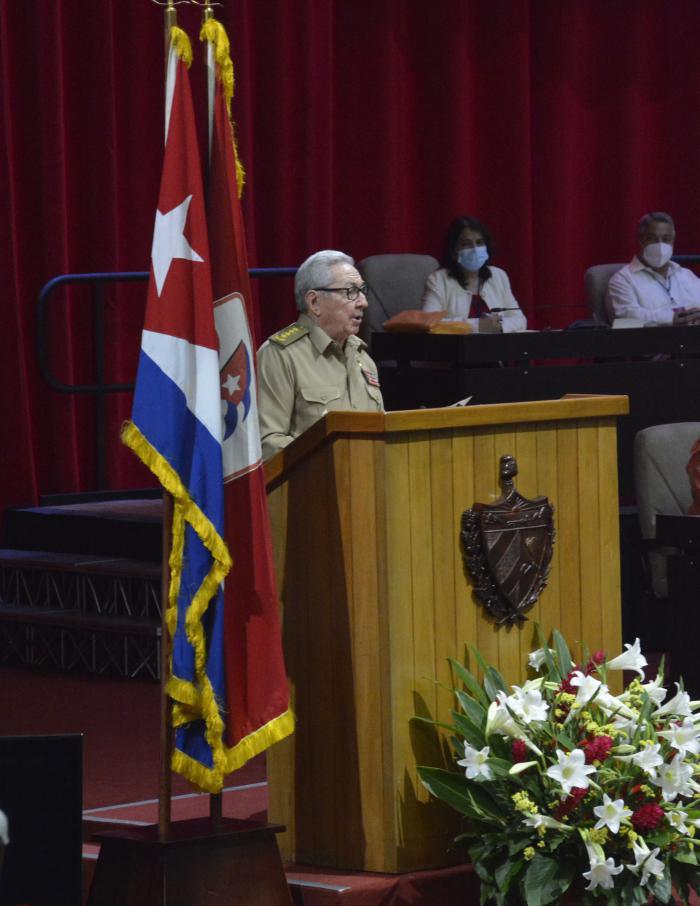
Central Report to the Eighth Congress of the Communist Party of Cuba
On April 16, 2021, Army General Raúl Castro Ruz delivered a pivotal address at the opening of the Eighth Congress of the Communist Party of Cuba, marking the 60th anniversary of the proclamation of the socialist character of the Cuban Revolution. The event coincided with the commemoration of the 1961 victory at Playa Girón, a defining moment in Cuba’s resistance against U.S.-backed aggression. Castro’s speech highlighted the historical significance of the Revolution, its enduring principles, and the challenges facing Cuba today. He emphasized the importance of unity, ideological firmness, and the need to adapt to contemporary global realities while preserving socialist values. Castro also addressed Cuba’s response to the COVID-19 pandemic, the country’s economic reforms, and the ongoing U.S. economic blockade, which he described as the most comprehensive and prolonged economic war ever waged against a nation. He underscored the resilience of the Cuban people and the necessity of strengthening the Party’s role in guiding the nation’s development. The Congress concluded with a reaffirmation of Cuba’s commitment to socialism, sovereignty, and international solidarity, particularly with Latin America and the Caribbean. Castro’s address served as both a reflection on Cuba’s revolutionary legacy and a roadmap for its future, emphasizing the importance of generational leadership transitions and the continued defense of socialist principles.
-
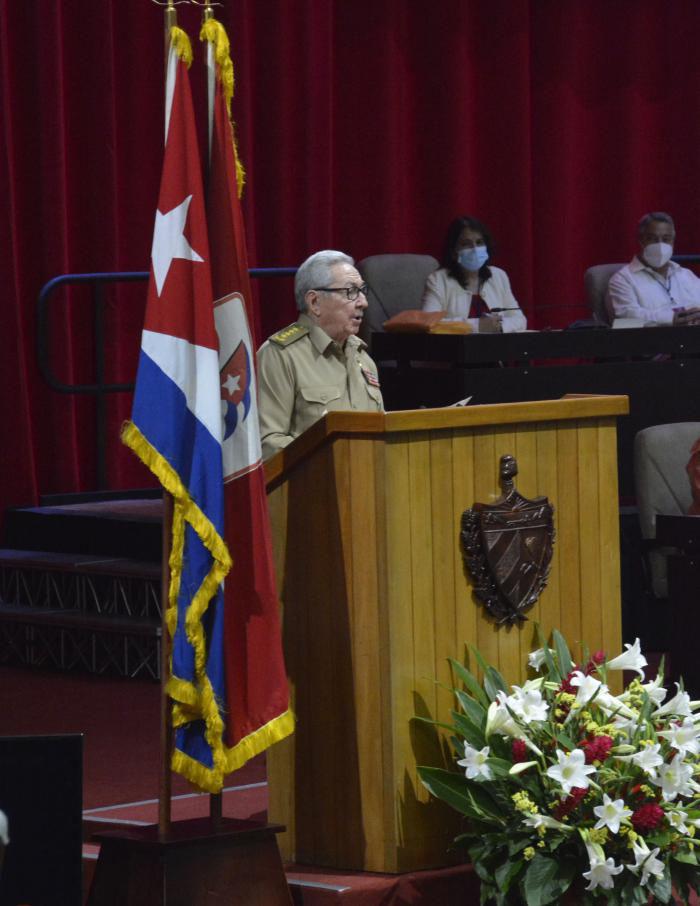
Central Report to the Eighth Congress of the Communist Party of Cuba
On April 16, 2021, Army General Raúl Castro Ruz delivered a pivotal address at the opening of the Eighth Congress of the Communist Party of Cuba, marking the 60th anniversary of the proclamation of the socialist character of the Cuban Revolution. The event, held under extraordinary circumstances due to the COVID-19 pandemic, underscored Cuba’s resilience and commitment to socialism amidst ongoing challenges, including the U.S. economic blockade and internal economic reforms. Castro highlighted the historical significance of the Revolution, emphasizing its enduring principles and the need for continued unity and ideological firmness. He also addressed the Party’s role in guiding Cuba’s development, the importance of youth engagement, and the ongoing efforts to update the country’s economic and social model. The Congress concluded on April 19, coinciding with the 60th anniversary of Cuba’s victory at Playa Girón, a symbol of the nation’s resistance to external aggression. Castro’s speech reaffirmed Cuba’s commitment to socialism, its defense of sovereignty, and its determination to overcome current challenges through collective effort and innovation.
